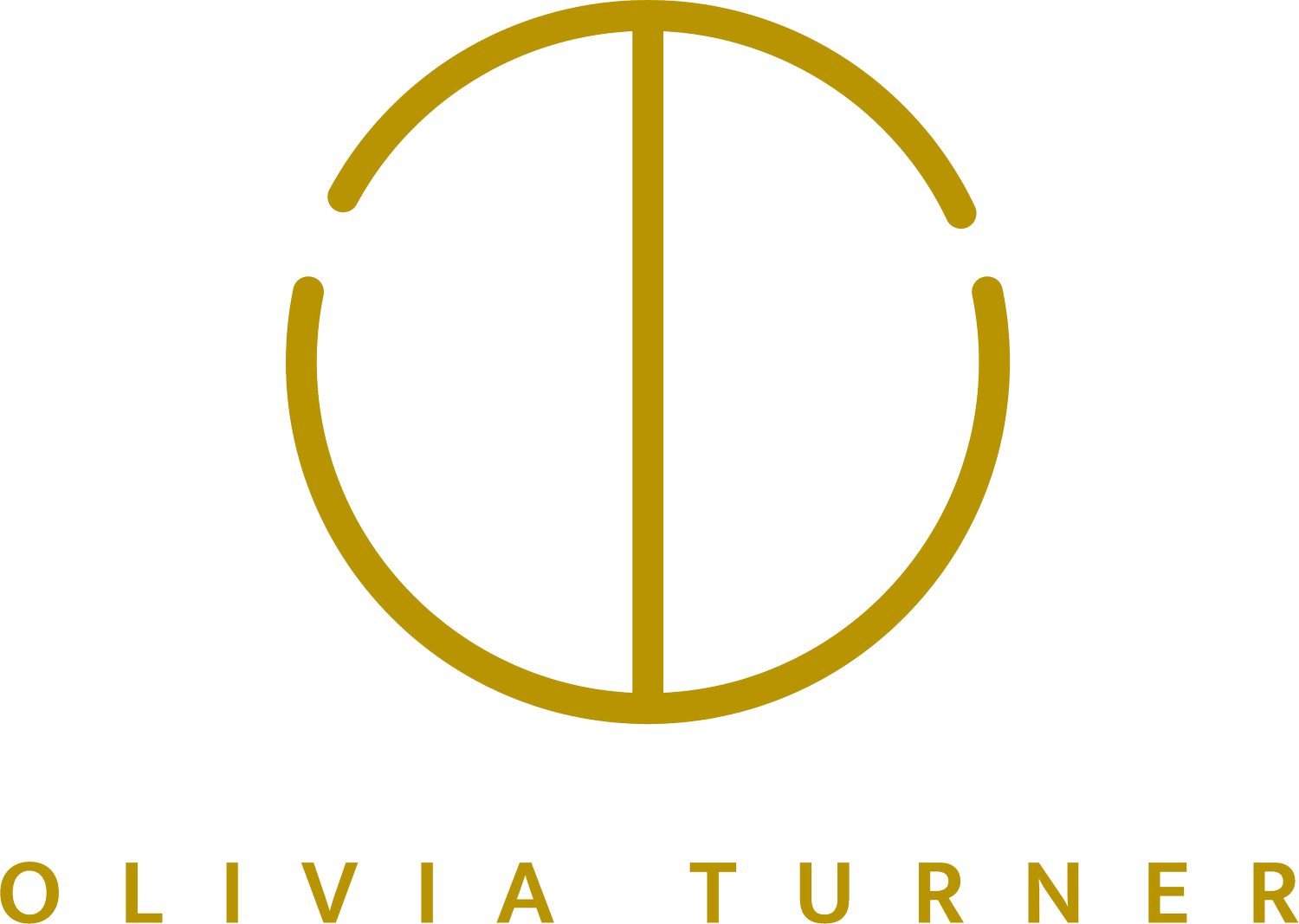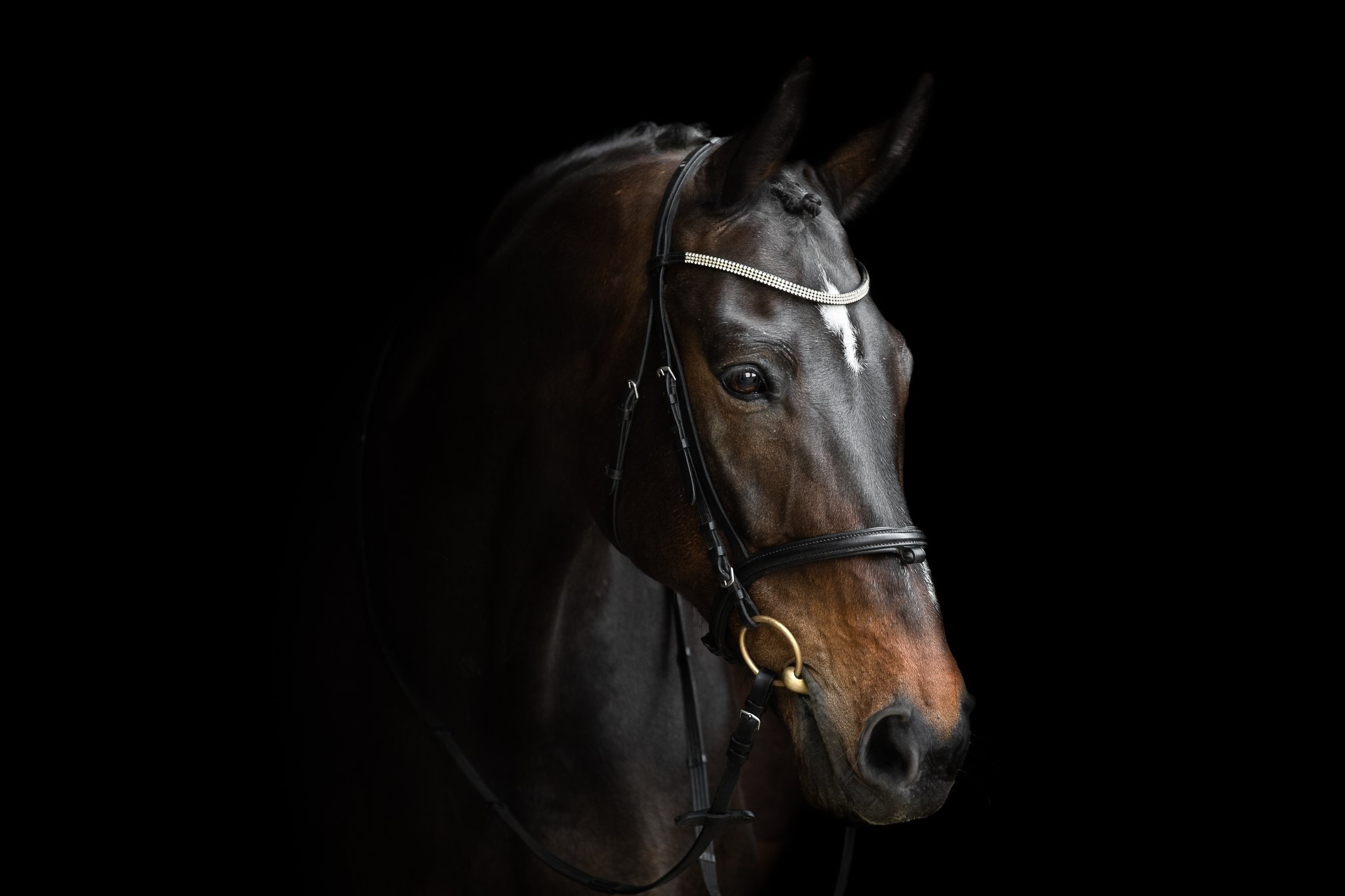
“For one to fly, one needs only to take the reins.”
- Melissa James
Equine Services
The physical form of the horse has been greatly changed over the course of their evolution and domestication. However, mentally they still remain a highly social animal and one of flight. Many of the things we do with horses are unnatural for them, yet we ask them to behave in certain ways and not put a hoof wrong in circumstances that are potentially stressful and go against the natural instinct of the horse.
Many horses struggle in many areas such as clipping, loading, breaking in, separation anxiety and being ridden. This can be difficult for any owner to deal with and there is a minefield of information out there on how you should go about training your horse. It is important to identify the root cause of any behaviour accurately. Only then can positive progress be made for both the owner and the horse.
As horses are flight animals, many behaviour problems are rooted in fear. Sadly some training methods focus on inducing more pressure on the horse and ultimately punishing any unwanted behaviours. Punishing fear-based behaviours will not address the fear. It will only make the horse feel worse about the whole situation, increase stress and anxiety and is likely to leave you with more training problems in the future.
As a behaviourist, it is my job to underpin the root cause of any behaviours and understand why the animal has developed these to begin with. From there we can effectively teach the animal not to react to certain things and thus behave in appropriate ways; all without causing undue fear, stress or anxiety! I have an in-depth knowledge of equine behaviour, learning theory and ethical humane training methods that are evidence based. I can help you create positive, lasting behavioural changes and improve your relationship with your horse. Contact me to discuss any issues you are having with your horse to see how I can help.
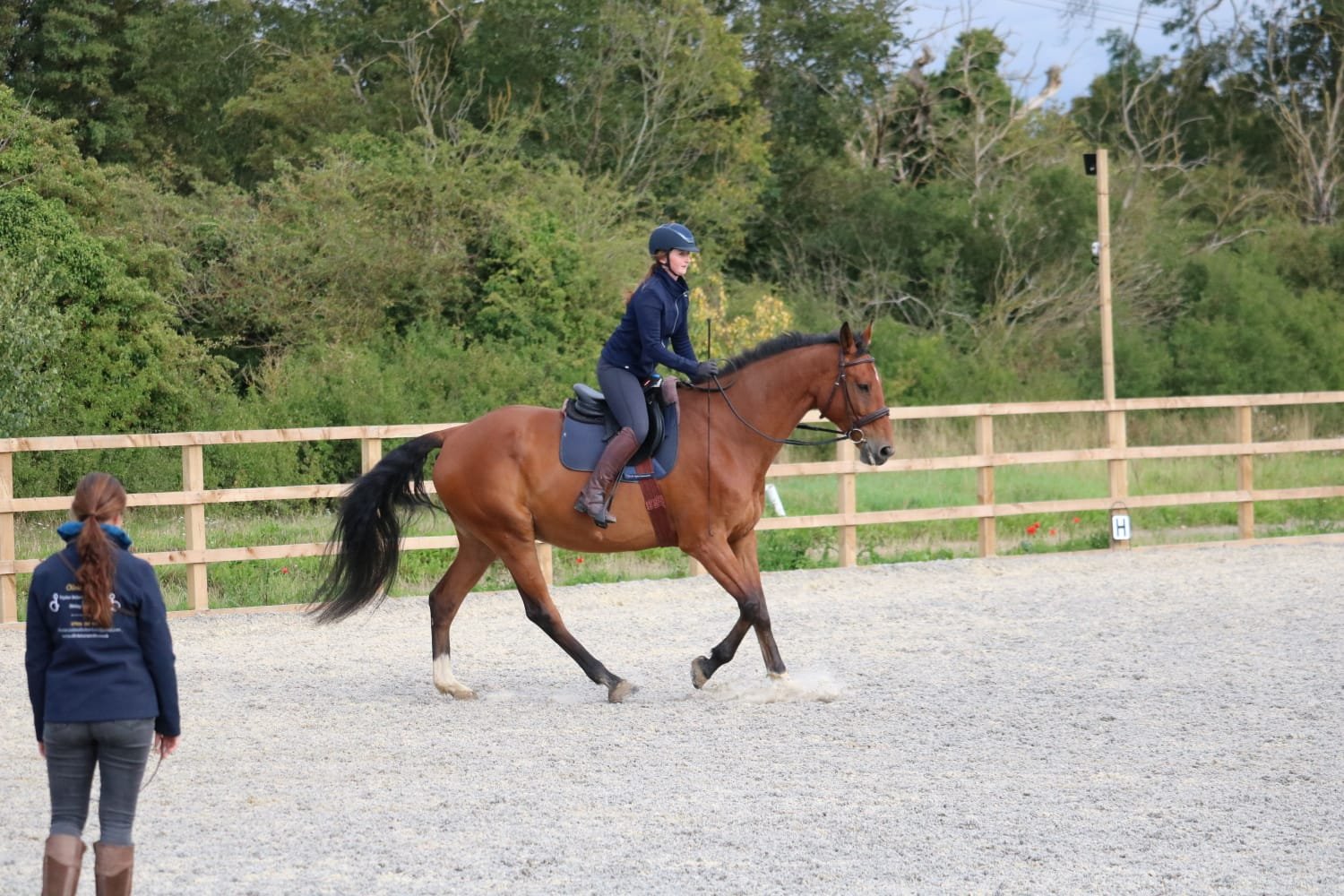
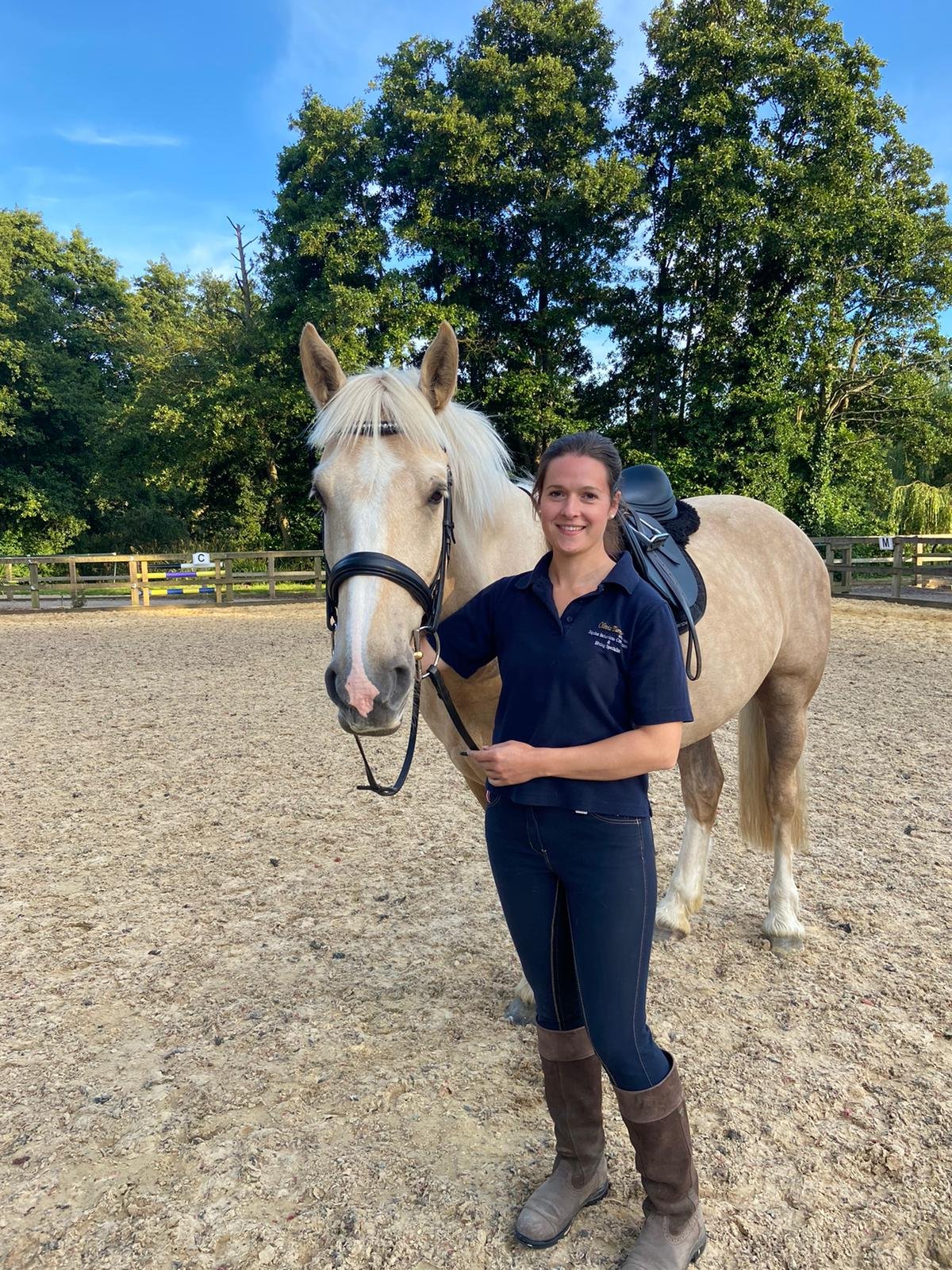

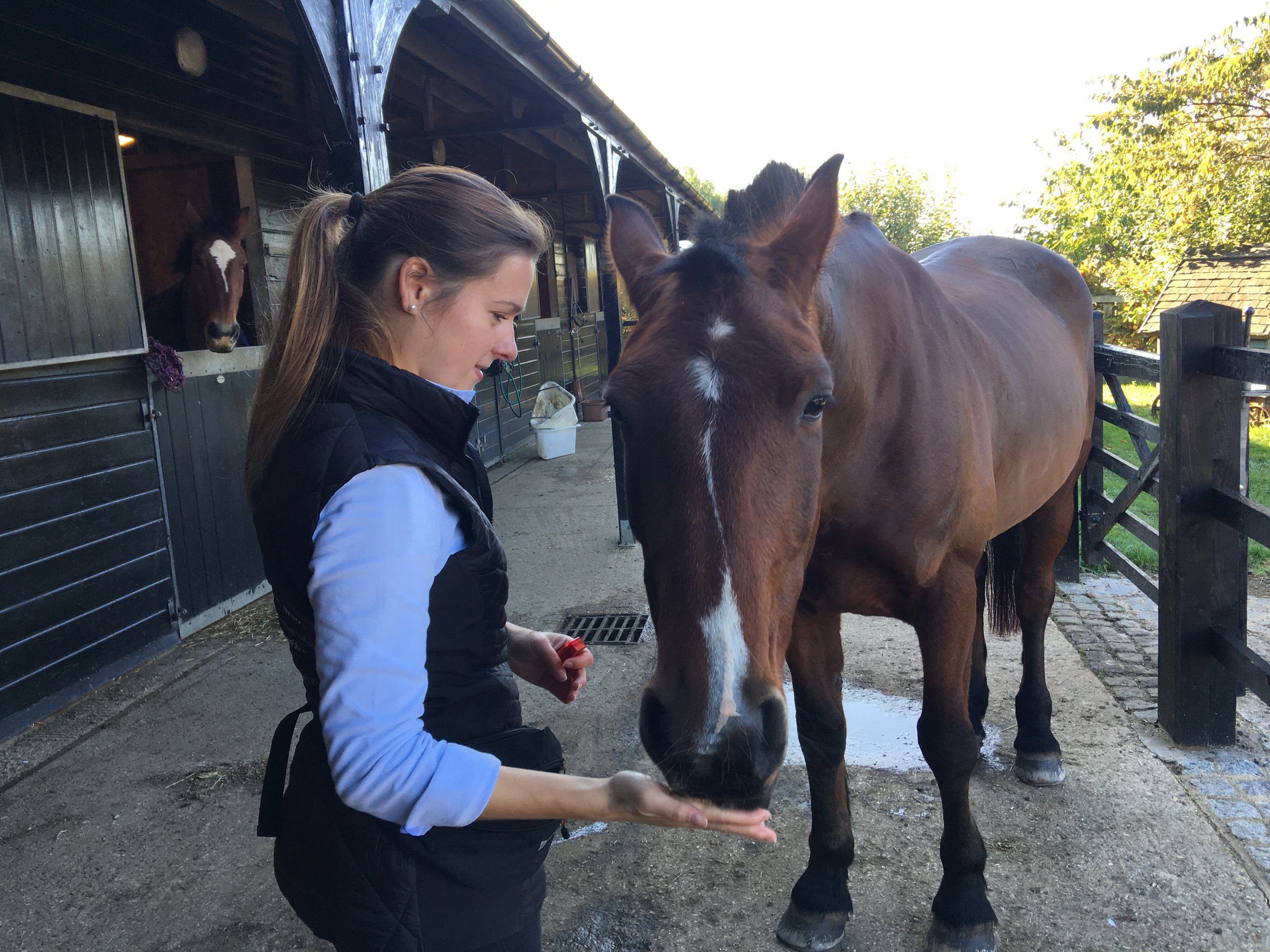
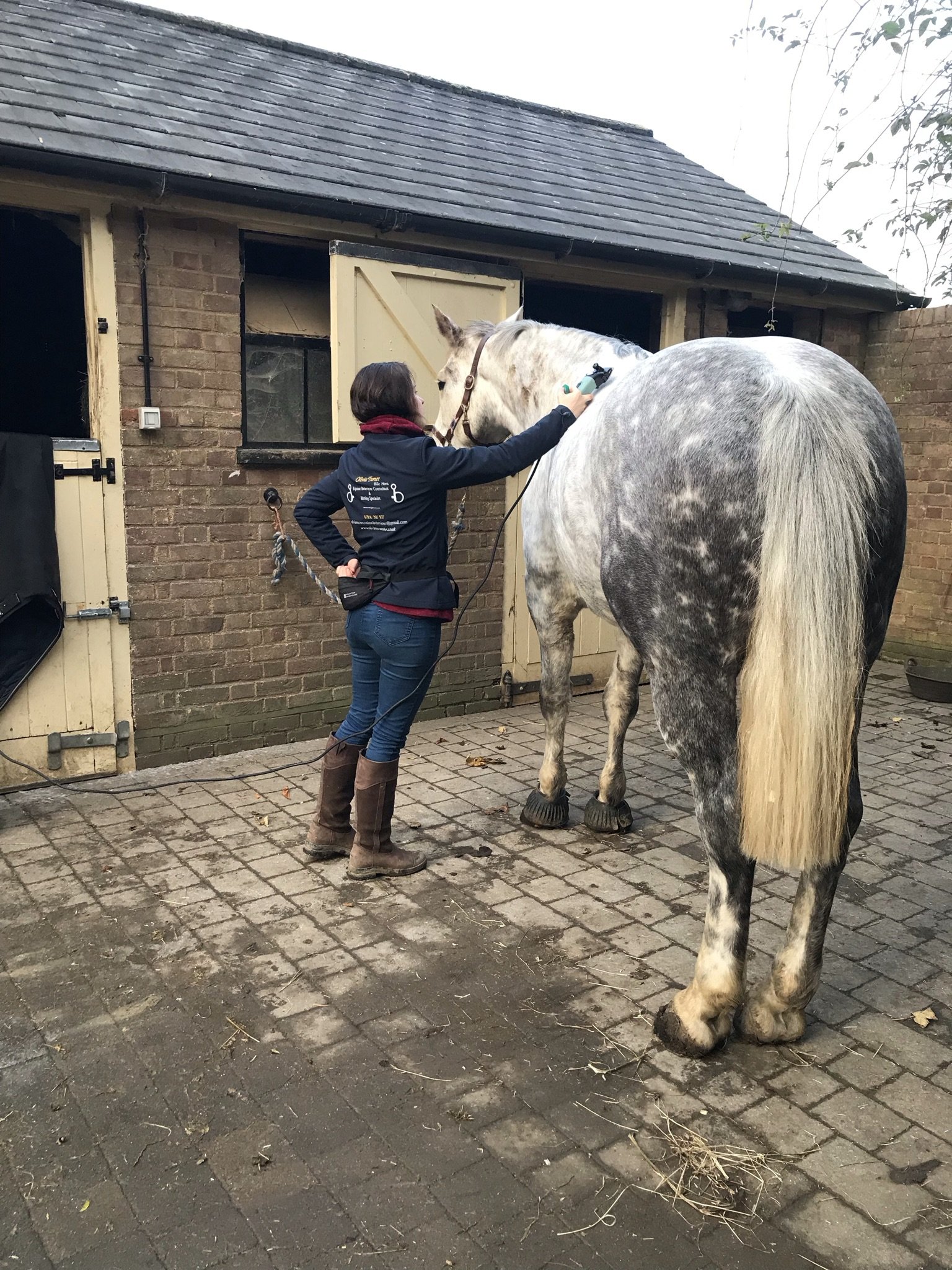

Bridle & Bit Fitting Specialist
How I can help
Together with my behaviour work I’m also a Bit and Bridle fitter. I am one of 12 fitters in the UK with the highest level of qualification in bit and bridle fitting after studying at The Academy run by Neue Schule and certification awarded by Lantra. This allows me to help improve the welfare and performance of more horses by ensuring they are comfortable and have a successful partnership with their rider.
Benefits of being a qualified behaviourist
Any tack or equipment we use on a horse should be well made and fit comfortably. This allows the rider’s aids to be more precise and means the horse can respond without discomfort or pain. There are clear behavioural and physical indicators a horse will show if it is in pain or discomfort. Sometimes this can be due to a dental issue, so make sure your horse is treated regularly by a qualified professional every 6 months to a year. You can find a registered member of the British Association of Equine Dental Technicians in your area, or ask your Vet.
As a behaviourist I am very experienced at picking up on these and working with you and your horse to achieve a happy, harmonious riding relationship. If your horse is showing signs of a bitting issue, then contact me today to book in for a consultation.
Common Indicators of a Bitting issue:
Mouth opening
Tail swishing
Reefing (grabbing bit and pulling through the rider’s hands)
Chewing or mouthing the bit
Straightness issues
Head tilting
Head shaking
Excessive salivation
Lifting the bit in the mouth or playing with it
Flapping lips
Retracting the tongue
Bulging the tongue
Protruding the tongue between the lips
Contact evasion or resistance to rider’s aids
High head carriage
Tongue over the bit
Head shaking
What happens in a bitting consultation?
Bridle and Bit Checks – All bridles have pressure points that act on the horse’s head, even bitless bridles! It is important to make sure that the bridle fits correctly without causing unnecessary amounts of pressure in certain places. A well fitted bridle will distribute the pressure evenly on certain areas of the face, maximising comfort for your horse. I’ll look at your current bit to check it is the right size and suits your horses mouth.
Full Mouth Conformation Analysis – It is important to ensure there are no sore points or injuries, like rubs, in the mouth that could be affecting how your horse responds to the bit. A horse that is in pain will find it very hard to relax, soften and listen to its rider. I’ll check the whole head for tender points which include the poll, TMJ and cheeks. Then I’ll check around the mouth, lips and commissures of the lips. The bars and tongue need to be checked for damage or bruising. The shape of the hard palate and how much space it offers a bit will be assessed and the teeth will be checked for sharp points or irregularities that might interfere with a bit.
Assessment Of Ridden Behaviour And Bitting Issues – I’ll watch you ride in your current bit to determine what’s uncomfortable for your horse and what it likes. Then we’ll trial a selection of other bits to find what style and design suits your horse and your riding level. Some riders need more control for certain disciplines while others just need a nice comfy bit for general riding.
I am an independent stockist for Neue Schule bits and carry a selection to suit any level of riding discipline, such as:
Dressage – Are you moving up to using doubles for the first time, or having difficulty in the doubles you already have? I can help start you off in the right direction with a universal bit that helps both horse and rider learn about using two reins and the use of poll pressure in their riding. Or it may be a question of fine tuning your doubles and offering up some other weymouths or bridoons to your horse, making them more comfortable and responsive.
Eventing – Bits for flatwork, cross country and showjumping. It is good practice to have a bit for flatwork and bit for faster work to give you more control in high speed situations.
Showjumping – Bits to help with turning and lifting can be hugely beneficial to horses that tend may hollow or rush around a course.
Prices:
Initial Bitting Consultation: £80
NB: A bitting session will normally take around 1.5-3 hours
Follow up Bitting Session: £55
Bridle Fitting ONLY (includes basic bit check): £45
Combined Bitting and Bridle Fitting Consultation: £95
Please note: travel costs will be in addition to your consultation fee. Where possible, journeys can be combined or shared to reduce travel costs.
Equine Behaviour Consultations
Behaviour
If your horse is displaying a severe behavioural problem that has been going on for a long period of time or is getting worse and dangerous; I’d need to conduct a full behaviour consultation. Sometimes it’s not always clear what a horse is reacting to or why a problem has occurred.
Several behaviours might be obvious while some are more subtle but contributing to the main problem. There might be a few underlying causes for these and therefore it’s not something that can be fully addressed in one training session. Quite often in severe cases, pain is the root cause of a problem, so I may want to work closely with your vet to help create the best programme for your horse.
What happens during a consultation?
During a phone call or an email conversation I will ask you some basic information about your horse and the type of problem or problems that you’re having. We’ll then arrange a time and day for me to come to your yard, meet your horse and assess its behaviour. I’ll take a full case history and will need as much information about your horse as possible, including any veterinary information. I’ll be able to identify reasons for the problem and how we can work together to repair what has gone wrong. During the consultation I will show you things to get started with, this may involve making some changes in the management of your horse and their routine.
After the consultation I will send you a personalised behavioural report and a training plan for you to put in place. We can then arrange and book in any future training sessions which will help you and your horse to progress. You will receive ongoing support and advice from me throughout our time together.
Common problems addressed in a consultation: aggression, separation anxiety, unwanted behaviours under saddle (such as bucking, rearing and bolting), handling difficulties in a variety of situations.
Prices
Behaviour / Training Consultations: £POA
NB: A session takes around 2-4 hours depending on your horse
Please note: travel costs will be in addition to your consultation fee. Where possible, journeys can be combined or shared to reduce travel costs.
Equine Training Sessions
These sessions can be focused on anything you'd like to practice or improve on with your horse. You can learn new training techniques and teach your horse something new. Book as many as you like!
Any follow ups from a behaviour consultation will take the format of a training session where we will work on your personalised behaviour modification programme and ensure you and your horse are progressing well.
Training sessions can be on a 1 to 1 basis or involve a small group that are all on a similar level of training or experiencing the same issues. Don’t be worried about being hands on with your horse, I can work with your horse to a point where you feel happy and confident to work with them yourself. Some behaviours are trickier than others to work with and may require a few sessions. If you have the patience and put in the effort, you’ll see results!
Popular training sessions include: groundwork, breaking in, clipping, loading, resolving spooking issues, stable manners, handling and vet visits.
Discounts available for group sessions or clinics.
